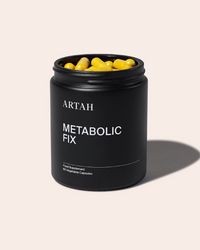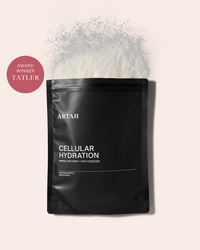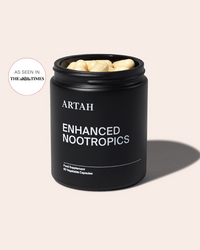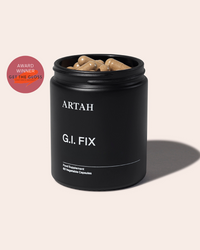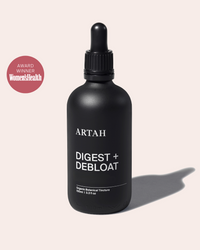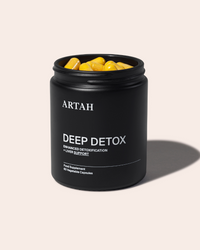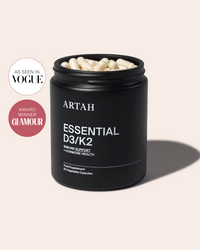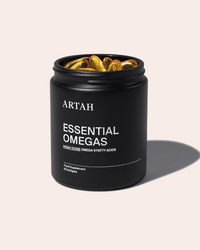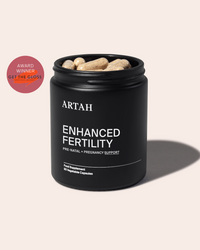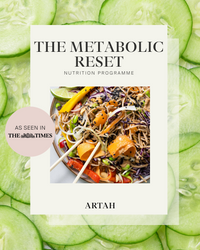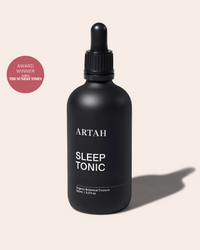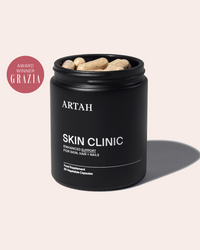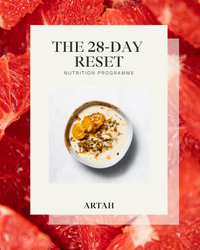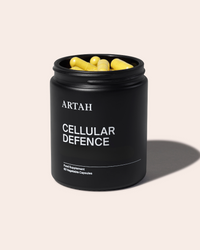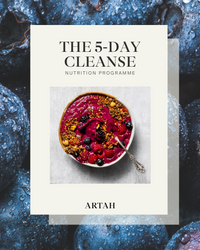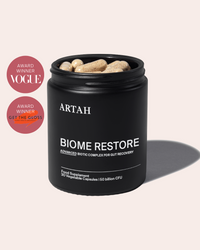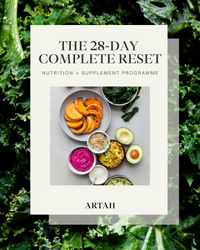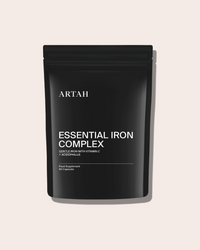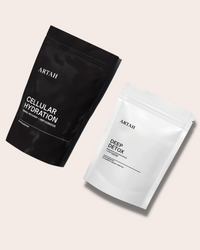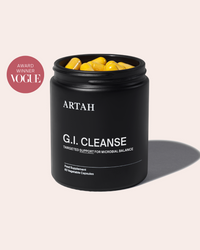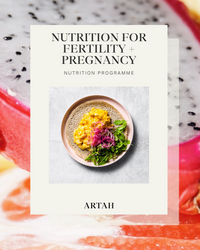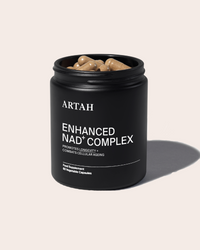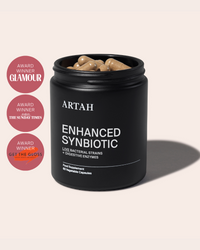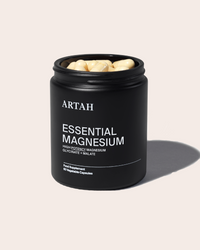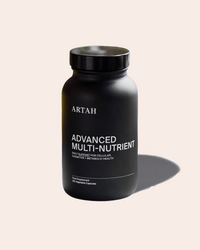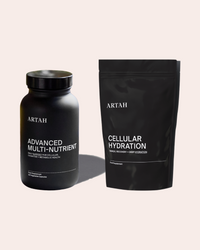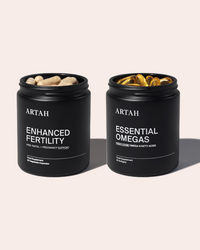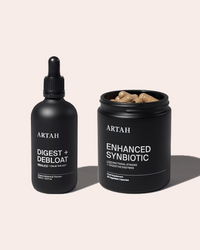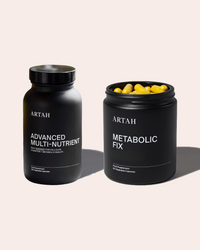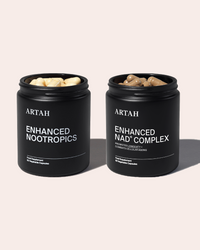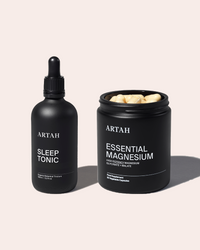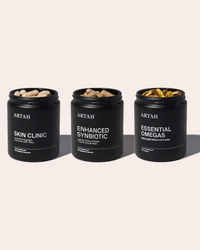Sirtuins: The Anti-Ageing Proteins You Need to Know About
In the realm of longevity and cellular health, there’s a group of seven proteins that are known as the master regulators of metabolism.
These proteins, called Sirtuins (SIRTs), play a crucial role in regulating important cellular processes, like DNA repair, inflammation, antioxidant defence systems, and of course, metabolism, and respond to environmental cues. Because of this, Sirtuins are great anti-ageing targets in the world of longevity, and doing what we can to optimise their function can go a long way in promoting cellular health and resilience, and extending our health span. (1)
Why are Sirtuins so important?
The importance of Sirtuins, particularly SIRT1, lies in their ability to maintain glucose and energy homeostasis and protect against age-related decline. (2) This is largely due to the ability to control the production of a hormone called Fibroblast Growth Factor 21 (FGF21), which helps prevent diabetes and has the ability to enhance mitochondrial function. (2) Sirtuins are also involved in promoting DNA stability through the regulation of gene expression; when genes are damaged, Sirtuins trigger the recruitment of repair factors that and enzymes that are essential for DNA repair. Because of this, finding ways to activate Sirtuins to maximise longevity potential is a hot topic - thankfully, there are plenty of foods, habits, and supplements we can implement for Sirtuin support.
Activating Sirtuins from a Lifestyle Perspective
Our lifestyles are strong influencers of Sirtuin activity and can both boost and hinder their function. Intermittent fasting and short-term caloric restriction, for example, have emerged as effective strategies for Sirtuin activation, with nearly all Sirtuin levels rising in response to both practices. (1) In turn, Sirtuins promote the beneficial outcomes associated with a caloric restriction, including reduced blood sugar and triglyceride levels. (1,3) Short-term protocols like The 5-Day Cleanse are a great way of increasing Sirtuin activity, but if the idea of a period of calorie restriction doesn't appeal to you, even extending the time between meals - including your overnight fast - can help. In practice, this means regularly getting at least 12-14 hours between your dinner and breakfast, and trying to avoid mindless snacking throughout the day to allow yourself to get truly hungry – something we don't do often. Your Sirtuins will thank you.
Regular exercise is also a powerful mediator of Sirtuins; research has shown that engaging in moderate to vigorous exercise, multiple times a week, over a prolonged time period results in elevated SIRT1 levels in our muscle, liver, and heart. (5,6) What does this mean? Ditch the fad workouts and find a type of movement that you find enjoyable and sustainable and can therefore commit to; consistency is key if you want to reap the full benefits.
SIRT-Promoting Foods
A class of phytonutrients called polyphenols are all the rage in the world of functional health, and for good reason - aside from providing extensive benefits to our gut health, they are also potent Sirtuin activators. What's more, they're incredibly easy to work into daily nutrition. Here are some of the best Sirtuin-supporting polyphenols, and where you can find them:
Promoting SIRT Activity: NAD+
Nicotinamide Adenine Dinucleotide – or NAD+ - is a potent activator of Sirtuins, which means that as NAD+ levels decline (both due to age and our lifestyle choices and environment), we also experience a decrease in Sirtuin activity (7). The solve?Supplementing with NAD+ precursors, such as Nicotinamide Riboside (NR), can boost NAD+ levels and enhanced Sirtuin activity. A combination supplement, like Enhance NAD+ Complex, that includes polyphenols as well as NAD+ precursors is a highly effective and holistic way of ensuring daily Sirtuin support.
Promoting SIRT Activity: Saffron
Known for its anti-inflammatory and antioxidant properties as well as its cognitive and cardiovascular benefits, Saffron has also garnered attention for its ability to promote Sirtuin activity. It contains bioactive compounds, like Crocin and Crocetin, which have been shown to activate Sirtuins and protect against age-related decline. (8) It increases activity in the NAD+ salvage pathway - our built-in mechanism for upcycling NAD+ - has been shown to reduce oxidative stress and inflammation, as well as provide neuroprotective benefits. (8)
Promoting SIRT Activity: Resveratrol
Resveratrol, a polyphenol found in grapes, peanuts, pistachios, cranberries, blueberries, and mulberries, has been identified as the most potent activator of Sirtuins. (9,14) Resveratrol mimics the effects of calorie restriction, which activates Sirtuins and promotes cellular resilience. (10) Studies have shown that Resveratrol supplementation may also improve cardiovascular and immune health, reduce inflammation, promote sugar and lipid regulation, as well as offer neuroprotection. (11,12).
Lifestyle Factors That Impair SIRTS
Obesity, chronic stress, and unhealthy dietary habits can hinder the activity of Sirtuins, leading to accelerated aging and an increased risk of age-related disease. Obesity-related inflammation, specifically, has been shown to disrupt Sirtuin function and compromise their ability to regulate vital cellular processes involved in cellular ageing, degeneration and disease. (13) Excessive consumption of ultra processed foods and sugary beverages can also impair Sirtuin function by increasing blood sugar levels, inflammation, and dysbiosis, which in turn undermines their protective effects against age-related decline.
What to do:
Disclaimer: The information is presented in this article is for educational purposes only and is not intended to diagnose, prevent, or treat any medical or psychological conditions. The information is not intended as medical advice, nor should it replace the advice from a doctor or qualified healthcare professional. Please do not stop, adjust, or modify your dose of any prescribed medications without the direct supervision of your healthcare practitioner.
References:
-
Grabowska W, Sikora E, Bielak-Zmijewska A. Sirtuins, a promising target in slowing down the ageing process. Biogerontology. 2017 Aug;18(4):447-476.
-
Higgins CB, Mayer AL, Zhang Y, Franczyk M, Ballentine S, Yoshino J, DeBosch BJ. SIRT1 selectively exerts the metabolic protective effects of hepatocyte nicotinamide phosphoribosyltransferase. Nat Commun. 2022 Feb 28;13(1):1074.
-
Wątroba, M., & Szukiewicz, D. (2016). The role of sirtuins in aging and age-related diseases. Advances in medical sciences, 61(1), 52-62.
-
Marton, O., Koltai, E., Nyakas, C., Bakonyi, T., Zenteno-Savin, T., Kumagai, S., ... & Radak, Z. (2010). Aging and exercise affect the level of protein acetylation and SIRT1 activity in cerebellum of male rats. Biogerontology, 11, 679-686.
-
Bayod, S., Del Valle, J., Lalanza, J. F., Sanchez-Roige, S., de Luxan-Delgado, B., Coto-Montes, A., ... & Pallas, M. (2012). Long-term physical exercise induces changes in sirtuin 1 pathway and oxidative parameters in adult rat tissues. Experimental gerontology, 47(12), 925-935.
-
Bori, Z., Zhao, Z., Koltai, E., Fatouros, I. G., Jamurtas, A. Z., Douroudos, I. I., ... & Radak, Z. (2012). The effects of aging, physical training, and a single bout of exercise on mitochondrial protein expression in human skeletal muscle. Experimental gerontology, 47(6), 417-424.
-
Poljšak B, Kovač V, Špalj S, Milisav I. The Central Role of the NAD+ Molecule in the Development of Aging and the Prevention of Chronic Age-Related Diseases: Strategies for NAD+ Modulation. International Journal of Molecular Sciences. 2023; 24(3):2959
-
Anaeigoudari F, Anaeigoudari A, Kheirkhah-Vakilabad A. A review of therapeutic impacts of saffron (Crocus sativus L.) and its constituents. Physiol Rep. 2023 Aug;11(15):e15785.
-
Cao D., Wang M., Qiu X., Liu D., Jiang H., Yang N., Xu R.M. Structural basis for allosteric, substrate-dependent stimulation of SIRT1 activity by resveratrol. Genes Dev. 2015;29:1316–1325.
-
Fang Y, Wang X, Yang D, Lu Y, Wei G, Yu W, Liu X, Zheng Q, Ying J, Hua F. Relieving Cellular Energy Stress in Aging, Neurodegenerative, and Metabolic Diseases, SIRT1 as a Therapeutic and Promising Node. Front Aging Neurosci. 2021 Sep 20;13:738686.
-
Bhullar, K. S., & Hubbard, B. P. (2015). Lifespan and healthspan extension by resveratrol. Biochimica et Biophysica Acta (BBA)-Molecular Basis of Disease, 1852(6), 1209-1218.
-
Salehi B, Mishra AP, Nigam M, Sener B, Kilic M, Sharifi-Rad M, Fokou PVT, Martins N, Sharifi-Rad J. Resveratrol: A Double-Edged Sword in Health Benefits. Biomedicines. 2018 Sep 9;6(3):91.
-
Chen J, Lou R, Zhou F, Li D, Peng C, Lin L. Sirtuins: Key players in obesity-associated adipose tissue remodeling. Front Immunol. 2022 Nov 24;13:1068986.
-
Dai H, Sinclair DA, Ellis JL, Steegborn C. Sirtuin activators and inhibitors: Promises, achievements, and challenges. Pharmacol Ther. 2018 Aug;188:140-154. doi: 10.1016/j.pharmthera.2018.03.004. Epub 2018 Mar 22. PMID: 29577959; PMCID: PMC6342514.






